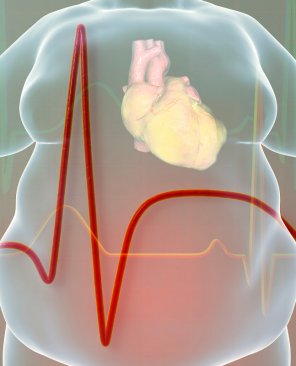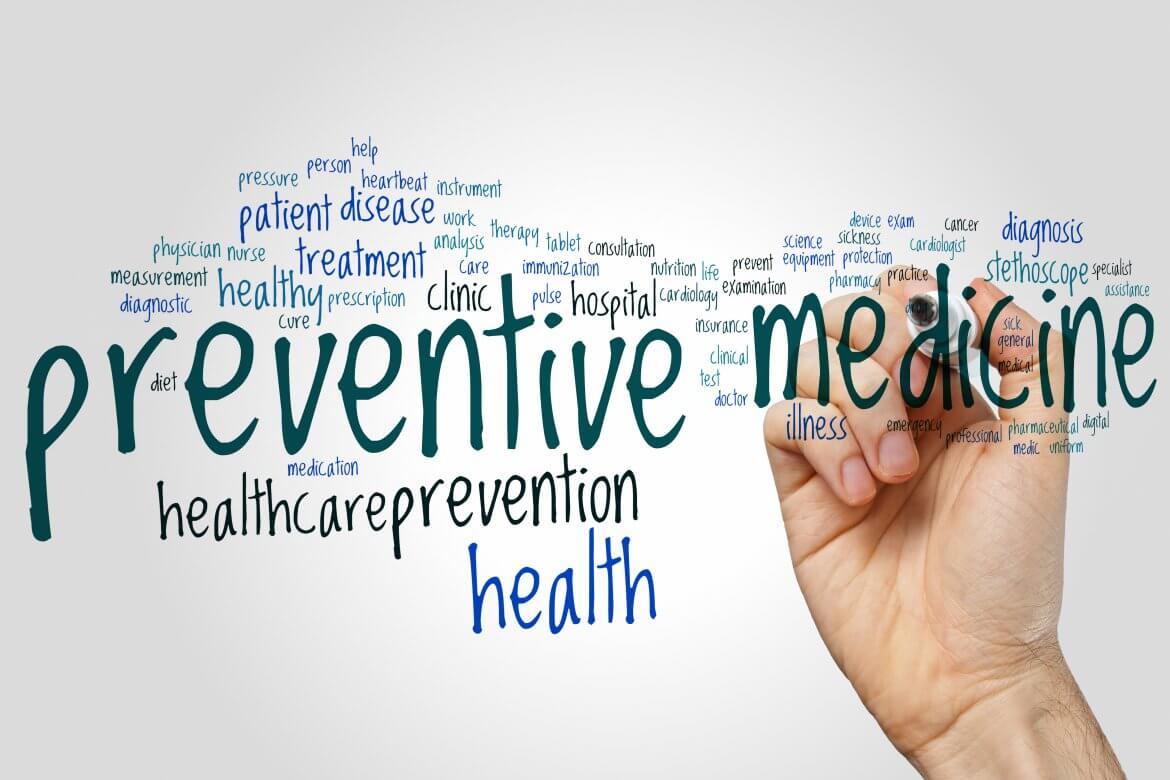
27 Jan 2023 We know prevention is better than the cure, and it could be the only way to save the NHS
We need to act now to stop eating our way into poor health and disease.
The crisis and strikes affecting the NHS dominate headlines across the country, with our national health service facing the most challenging time in its history. Worsening working conditions and outrage over pay are driving a staffing emergency, yet the real problems run deeper. This has prompted the British Association of Nutrition and Lifestyle Medicine (BANT) to insist that the government wake up to the failings of decades of poor policy around the importance of nutrition and lifestyle interventions to prevent the onset and progression of many diseases.
Demand for the NHS has now overtaken supply to a critical level. Not only is it still reeling from the trauma of the pandemic with resulting delays to scheduled care, but the NHS is managing a population that is sicker than ever before in its history. It is clear that a truly revolutionary approach to public health is now not just wise, but essential. As things stand, we are eating our way to becoming the most overweight nation in Europe.
This has put such a strain on the health system, it risks collapse. Non-communicable diseases – cardiovascular disease, cancers, chronic respiratory disease, and type 2 diabetes mellitus – cause an estimated 89% of UK deaths (1), drains as much as 75% of health budgets with The Department of Health releasing data back in 2011 noting that “total long-term care expenditure was forecast to rise by 29% to £26.4 billion” by 2022 (2). This underlines the worsening trend in diet-induced illness, with obesity being the common denominator in all four of these non-communicable diseases. Nearly 12 years on and the government response has been inadequate.
Britain’s worsening obesity epidemic
 The World Health Organisation (WHO) warns that obesity has already reached “epidemic proportions” in Europe, causing 200,000 cancer cases and 1.2 million deaths a year. The UK is currently 4th in its European obesity rankings and in ten years is predicted to top the charts (3). Since 1993 the proportion of adults in England who are overweight or obese has risen from 52.9% to 64.3%, and 14.9% to 28.0% respectively (4). These statistics show no sign of slowing with new data suggesting that by 2030 UK figures will worsen passing from 70-74% of men and 59-64% of women newly classified as either overweight or obese (5). As alarmingly, the same trends can be seen in child obesity rates with 14.4% of reception age children (age 4-5) now obese (up from 9.9% in 2019/20) with similar increases across all older age groups (4).
The World Health Organisation (WHO) warns that obesity has already reached “epidemic proportions” in Europe, causing 200,000 cancer cases and 1.2 million deaths a year. The UK is currently 4th in its European obesity rankings and in ten years is predicted to top the charts (3). Since 1993 the proportion of adults in England who are overweight or obese has risen from 52.9% to 64.3%, and 14.9% to 28.0% respectively (4). These statistics show no sign of slowing with new data suggesting that by 2030 UK figures will worsen passing from 70-74% of men and 59-64% of women newly classified as either overweight or obese (5). As alarmingly, the same trends can be seen in child obesity rates with 14.4% of reception age children (age 4-5) now obese (up from 9.9% in 2019/20) with similar increases across all older age groups (4).
Favouring cure over prevention, the NHS performed over 4,035 bariatric surgery procedures in the financial year 2021/22 (6). The data on diabetes is just as shocking with over 7,957 major amputations and 21,738 minor amputations performed during the three-year period of 2017/18 to 2019/20 (7). By 2035/36, Type 2 diabetes is projected to cost the NHS £15 billion a year, or one and a half times as much as cancer does today (8,9) which is equal to 10% of the NHS £153 billion commissioning budget for 2022/23 (10). Much of this could be avoided with the right preventative care in place. The UK population is critically overweight, and the burden of obesity has driven the NHS to bursting point.
How did we get here?
We cannot address diet-induced illness without discussing what we eat.
“The obesity epidemic hasn’t been a sudden disaster, but more like a slow-moving landslide. It’s not just an abundance of food that has caused this landslide. It is also the particular nature of the food.” National Food Strategy Plan
As the population has become increasingly heavy, calorie-dense food has become cheaper and more available. Data shows that 50% of UK household food purchases are ultra-processed foods and drinks (UPFDs). This compares to 46% for Germany, and just 14% for France and 13% for Italy (11). The 2021 government-commissioned National Food Strategy talked about ‘Escaping the junk food cycle’ but since then, the year-on-year growth in food delivery apps and services has made it easier to have junk food delivered straight to your door, further promoting sedentary lifestyle. The food delivery industry undoubtedly profited from the pandemic and is expected to grow to $320 billion by 2029 (12) and whilst easy food delivery is just one factor in obesity, the type of fast foods they typically promote is fuelling the problem.
 The science is unequivocal about ultra-processed foods and drinks showing that consumption directly correlates with increased obesity and non-communicable disease (13,14,15). It is not rocket-science. UPFDs are high in sugars, salt, saturated fats, and modified starches, not to mention the many ingredients unfamiliar to domestic kitchens, such as soy protein isolates or dextrose, the colourings, emulsifiers, flavourings, and other additives added to make the products better-looking, tastier, more stable and longer-lasting. All of which is intended to make these foods and drinks extremely “more-ish” – or “hyperpalatable” – or in even simpler terms, addictive.
The science is unequivocal about ultra-processed foods and drinks showing that consumption directly correlates with increased obesity and non-communicable disease (13,14,15). It is not rocket-science. UPFDs are high in sugars, salt, saturated fats, and modified starches, not to mention the many ingredients unfamiliar to domestic kitchens, such as soy protein isolates or dextrose, the colourings, emulsifiers, flavourings, and other additives added to make the products better-looking, tastier, more stable and longer-lasting. All of which is intended to make these foods and drinks extremely “more-ish” – or “hyperpalatable” – or in even simpler terms, addictive.
Conversely, and despite decades of the public health campaigning to eat 5-a-day, consumption of vegetables remains well below recommended amounts, with children and low-income groups eating the least. This is not aided by the fact that approximately one third (32%) of food and soft drink advertising spend goes towards less healthy food and drinks, compared to just 1% for fruit and vegetables (16). Health England found that volume promotions such as BOGOFs (buy one get one free) increase purchases of products by an average of 15% (17). Thus, the government decision to push back the introduction of the long-awaited 9pm watershed and online advertising ban on junk food by three years to October 2025 is baffling and has been branded ‘a disastrous attack on health’ by campaigners. Putting promotions to one side, 85% of the manufactured food products sold in the UK are deemed to be so unhealthy they are unsuitable for marketing to children (18). The very thing that should provide sustenance, energy and good health – food (or rather ultra-processed foods) – is now killing us and making a huge number of people extremely unwell.
The pathway back to healthy food choices is littered with challenges, not least legislating against the food industry to promote healthier product reformulation. This perhaps goes part-way to explaining the weak DEFRA white paper response to the National Food Strategy recommendations. However, by placating ‘Big Food’ the government is simply creating bigger problems down the line for the NHS, the very institution the food strategy seeks to protect.
The foundation of the NHS
The constitution on which the NHS was founded states:
‘The NHS belongs to the people. It is there to improve our health and wellbeing, supporting us to keep mentally and physically well, to get better when we are ill and, when we cannot fully recover, to stay as well as we can to the end of our lives.’
What it didn’t account for is the fact that we now live in a completely different food landscape from that of previous generations, and we have a population on a fast-track to eating themselves sick. This is not to attribute individual blame as obesity co-exists with outright poverty and hunger due to health inequalities and nationwide disparities in affordability and access to healthy foods. However, the NHS budget has historically been dedicated to acute care and cure, with only 5% spent on prevention (19). Yet the lion share of the people the NHS is now treating are those suffering from long-term chronic conditions, the majority of which are linked to diet and lifestyle behaviours.
The NHS is buckling under the ever-increasing burden caused by modern lifestyle.
Why is government failing on prevention?
Since 1992, 14 government-led strategies and 680 polices related to obesity have failed, including the most recent 2020 ‘Better Health’ campaign and NHS digital weight management services (20), the funding for which has now been pulled (21). This perfectly illustrates the lack of consistency in government policy and continual pattern of funding and defunding initiatives.
The Eatwell Guide, as a policy tool used to define government recommendations on eating healthily and achieving a balanced diet is out of date and not fit for purpose. It was last updated in 2016 and the gap between these national Food Based Dietary Guidelines (FBDG) and actual eating habits is getting bigger by the day with just 0.1 % of the UK population achieving the current UK Eatwell guidelines for a healthy and sustainable diet (22). The guidelines themselves are flawed, lacking the latest science-based recommendations across all food groups and any meaningful portion guidance. Previously sponsored versions were nothing more than a marketing tool for industry brands as opposed to a policy tool. The government has spectacularly failed to put in place or promote any meaningful diet and nutrition guidance for over a decade. In some ways the National Food Strategy was a gift to government, having done all the hard work for them. But even this failed to translate into meaningful policy and has been lost as governments have changed and shifted focus.

The obvious way forward
There is, however, one unexplored opportunity in all the prevention strategies that have been proposed to date; the one that puts nutrition professionals at the centre of a plan to tackle diet-induced chronic illness. There is no better way to guide on diet and nutrition as prevention then qualified nutrition professions, experienced in personalised nutrition and behaviour change.
Currently there are c.9,508 dietitians registered with the British Dietetic Association (BDA), and c. 3,500 Registered Nutritional Therapy Practitioners not working within a primary care setting due to lack of joined-up-thinking. Only Registered Nutritional Therapy Practitioners and Registered Dietitians are trained and qualified in clinical practice to meet national standards and work in a one-to-one setting. These nutritional therapy practitioners are represented by the leading professional body, the British Association for Nutrition and Lifestyle Medicine (BANT) who also acts as self-regulator for BANT Registered Nutritionists®. This contrasts with the Association for Nutrition (AfN) who hold a voluntary self-regulated professional register (UKVRN) for nutrition practitioners who have undertaken accredited courses, most of which are public health or industry-focused as opposed to patient-centric clinical practice.
Despite lack of industry-wide regulation, BANT practitioners are required to be registered either with Complementary and Natural Healthcare Council (CNHC) or be statutorily regulated. CNHC holds a register accredited by the Professional Standards Authority for Health and Social Care (PSA). A 2017 report by the Royal Society for Public Health and the Professional Standards Agency made a key recommendation that PSA Accredited Voluntary Registered (AVR) practitioners have the authority to make direct NHS referrals, in appropriate cases, to ease the administrative burden on GP surgeries. This has not been acted upon. Collaboration with General Practitioners is typically self-directed and rapport-driven when AVR practitioners should automatically be considered as an extension to the primary care workforce.
Failure to put registered nutrition professionals at the core of the solution to this public health crisis could lead to national catastrophe.
BANT in Action
BANT practitioners regularly work with individuals and groups to support adoption of improved dietary and lifestyle practices. One such example is an online group programme, ran by two BANT members, Isabel Hemmings, and Sue Wharton. In 12 weeks, the participants lost an average of 7.2 kg (15.9 lbs) of weight, 8.5 cm (3.4 inches) of their waist circumference and if that is not significant enough, their average mental health score improved by 8.5 units based on The Edinburgh Warwick Mental Wellbeing Scale (WEBWMS). This is not an isolated incidence and could be easily incorporated to support NHS initiatives.
 BANT continues to promote healthy food choices with their ‘Food for your Health’ resources launched to tackle the rise in diet-induced illness. Resources are free and open-access with the aim of providing nutrition and dietary education to individuals who may not otherwise have access to nutrition support. Support that the government is failing to provide, and the NHS is unable to deliver. Investing more in prevention and redistributing the burden on the NHS should be the governments number one priority and it could be the only way to save the NHS.
BANT continues to promote healthy food choices with their ‘Food for your Health’ resources launched to tackle the rise in diet-induced illness. Resources are free and open-access with the aim of providing nutrition and dietary education to individuals who may not otherwise have access to nutrition support. Support that the government is failing to provide, and the NHS is unable to deliver. Investing more in prevention and redistributing the burden on the NHS should be the governments number one priority and it could be the only way to save the NHS.
This article was published to Politics Home (PoliticsHome is an indispensable information source for the most influential people in UK politics – including Cabinet ministers, MPs, peers, senior civil servants and Westminster journalists)
View the BANT portal here: https://www.politicshome.com/members/article/we-know-prevention-is-better-than-the-cure-and-it-could-be-the-only-way-to-save-the-nhs
REFERENCES:
- https://publications.parliament.uk/pa/ld201617/ldselect/ldnhssus/151/15109.htm
- https://fullfact.org/news/how-much-nhs-budget-spent-treating-chronic-conditions/
- Trends in adult body-mass index in 200 countries from 1975 to 2014: a pooled analysis of 1698 population-based measurement studies with 19·2 million participants. Accessed 09/01/23 https://www.thelancet.com/journals/lancet/article/PIIS0140-6736(16)30054-X/fulltext
- National Obesity Audit (NOA) . Accessed 17/01/2023 https://app.powerbi.com/view?r=eyJrIjoiYmIyZWRmYjUtYTQ1ZS00YWEwLWIxOGUtYTkyZTM2ZDlmNDQ0IiwidCI6IjUwZjYwNzFmLWJiZmUtNDAxYS04ODAzLTY3Mzc0OGU2MjllMiIsImMiOjh9
- https://www.theguardian.com/society/2015/may/05/obesity-crisis-projections-uk-2030-men-women
- https://commonslibrary.parliament.uk/research-briefings/sn03336/#:~:text=28%25%20of%20adults%20in%20England,bariatric%20surgery%20and%20international%20comparisons.
- https://fingertips.phe.org.uk/static-reports/diabetes-footcare/national-diabetic-footcare-report.html
- Hex, N. et al. (2012). Estimating the current and future costs of Type 1 and Type 2 diabetes in the UK, including direct health costs and indirect societal and productivity costs. Diabetic Medicine, 29(7), pp.855–862. Available at: https://pubmed.ncbi.nlm.nih. gov/22537247/;
- Hofmarcher, T. et al. (2020). The cost of cancer in Europe 2018. European Journal of Cancer, 129, pp.41–49. Available at: https://ihe.se/publicering/the-cost-of-cancer-in-europe-2018
- https://www.england.nhs.uk/publications/business-plan/our-2022-23-business-plan/our-funding
- https://www.cambridge.org/core/journals/public-health-nutrition/article/household-availability-of-ultraprocessed-foods-and-obesity-in-nineteen-european-countries/D63EF7095E8EFE72BD825AFC2F331149
- https://www.businessofapps.com/data/food-delivery-app-market/
- Rauber F, da Costa Louzada ML, Steele EM, Millett C, Monteiro CA, Levy RB. Ultra-Processed Food Consumption and Chronic Non-Communicable Diseases-Related Dietary Nutrient Profile in the UK (2008⁻2014). Nutrients. 2018 May 9;10(5):587. doi: 10.3390/nu10050587. PMID: 29747447; PMCID: PMC5986467.
- Filippa Juul, Georgeta Vaidean, Niyati Parekh, Ultra-processed Foods and Cardiovascular Diseases: Potential Mechanisms of Action, Advances in Nutrition, Volume 12, Issue 5, September 2021, Pages 1673–1680, https://doi.org/10.1093/advances/nmab049
- Nardocci, M., Polsky, J.Y. & Moubarac, JC. Consumption of ultra-processed foods is associated with obesity, diabetes and hypertension in Canadian adults. Can J Public Health 112, 421–429 (2021). https://doi.org/10.17269/s41997-020-00429-9
- https://foodfoundation.org.uk/publication/broken-plate-2022
- mithson, M. et al. (2015). An analysis of the role of price promotions on the household purchases of food and drinks high in sugar. Public Health England. Available at: https://assets.publishing.service.gov.uk/government/uploads/system/uploads/attachment_data/ file/470175/Annexe_4._Analysis_of_price_promotions.pdf
- Access to Nutrition Initiative. (2019). UK Product Profile 2019. Access to Nutrition Initiative. Available at: https://accesstonutrition. org/app/uploads/2020/02/UK-Product-Profile_Full_Report_2019.pdf
- Office for National Statistics. (2020). Healthcare expenditure, UK health accounts: 2018. Available at: https://www.ons.gov.uk/peoplepopulationandcommunity/healthandsocialcare/healthcaresystem/
- bulletins/ukhealthaccounts/2018
- https://www.england.nhs.uk/publications/business-plan/our-2022-23-business-plan/our-funding/
- https://mynutriweb.com/the-eatwell-guide-time-for-a-shake-up/
NOTES TO EDITORS:
BANT is the leading professional body for Registered Nutritional Therapy Practitioners in one-to-one clinical practice and a self-regulator for BANT Registered Nutritionists®. BANT members combine a network approach to complex systems, incorporating the latest science from genetic, epigenetic, diet and nutrition research to inform individualised recommendations. BANT oversees the activities, training and Continuing Professional Development (CPD) of its members.
Registered Nutritional Therapists are regulated by the Complementary and Natural Healthcare Council (CNHC) that holds an Accredited Voluntary Register (AVR) for the Professional Standards Authority for Health and Social Care (PSA). A report by the Royal Society for Public Health and the Professional Standards Agency made a key recommendation that AVR practitioners have the authority to make direct NHS referrals, in appropriate cases, to ease the administrative burden on GP surgeries. BANT nutrition practitioners are the key workforce asset to harness 21st century lifestyle medicine to tackle the rising tide of stress-related fatigue, obesity, Type 2 Diabetes, dementia and other chronic diseases.
To find a BANT nutrition practitioner, please click here
BANT WELLBEING GUIDELINES:
The BANT Wellbeing Guidelines are specifically designed to provide clear, easy to understand general information for healthy diet and lifestyle when personalised advice is not available.
BANT launched its “Food for your Health” Campaign in February 2021 to provide open-access resources to help guide the public towards healthier food choices in prevention for diet-induced disease. Download a wide range of food and lifestyle guides, recipes, infographics, planning tools and fact sheets and start making healthy c

